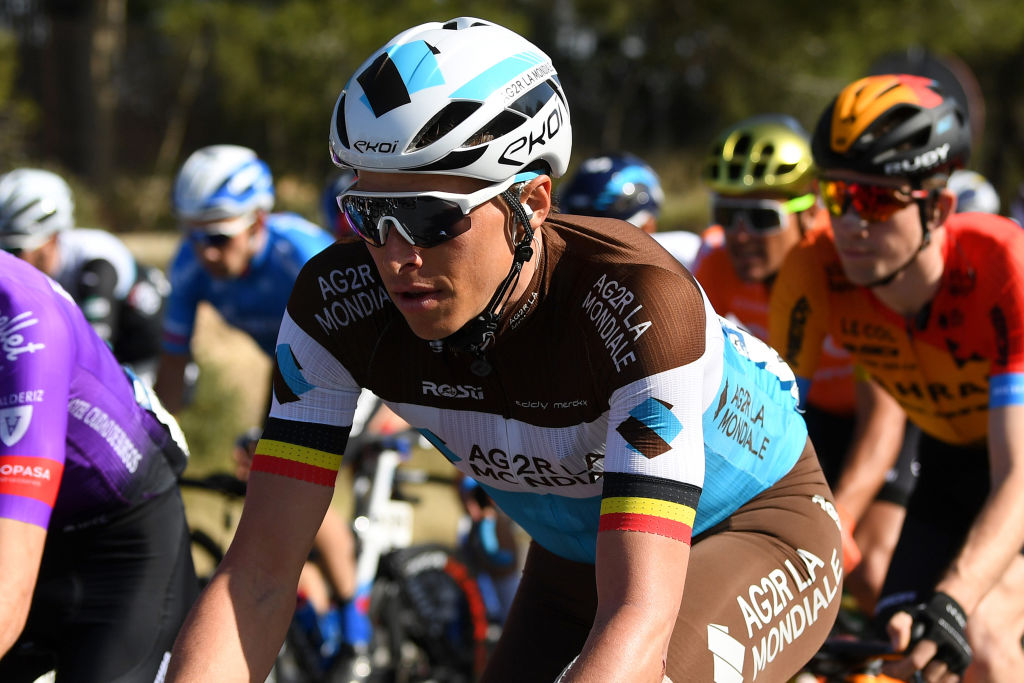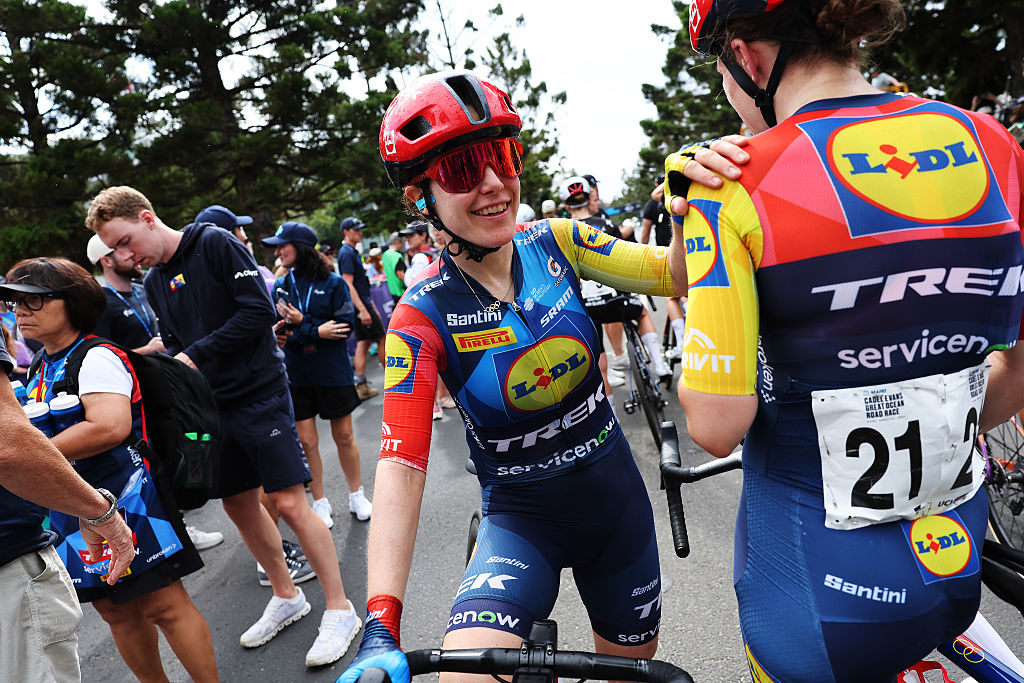Oliver Naesen: Racing without an audience is not the end of the world
Sporza survey highlights impacts of COVID-19 pandemic on Belgian riders

The latest race content, interviews, features, reviews and expert buying guides, direct to your inbox!
You are now subscribed
Your newsletter sign-up was successful
The majority of pro riders in Belgium would prefer to continue competition 'behind closed doors’ once the new late-season calendar resumes, according to the results of a survey that Sporza conducted.
The survey highlighted the impacts of the COVID-19 coronavirus on Belgian pros and included three main areas; racing without an audience, time needed to train before racing resumes, and the percentage of riders who had to give up a portion of their income.
The UCI announced the new post-COVID-19 dates of the WorldTour calendars on May 5 with the Tour de France set for August 29-September 20, the Giro d'Italia rescheduled for October 3-25, and the Vuelta a España from October 18-November 8. There will also be the major one-day races held between August 1 and November 8. The sport governing body then revealed the entire revised International Road Calendar that will include 61 elite men’s events.
UCI President David Lapparient stressed that the published revised calendar remains dependent on the development of the COVID-19 virus along with the health precautions and guidelines stipulated in each nation, that includes considerations of hosting events without large gatherings of spectators.
Tim Declercq of Deceuninck-QuickStep acknowledged that some races would be difficult to control large gatherings, such as the Tour of Flanders, however, some smaller or more remote races could be held without an audience.
AG2R La Mondiale’s Oliver Naesen echoed that statement telling Sporza that, “Without an audience, it is not the end of the world. It is not what we dream of when we prepare, but difficult times, difficult measures."
Public health restrictions surrounding the COVID-19 pandemic has forced varying levels of public health restrictions in each country. Some countries experienced a full lockdown such as Italy and Spain, while others had social-distancing restrictions and limits to public gatherings. This means that some riders have been able to continue training fairly regularly outside while others have been stuck indoors.
The latest race content, interviews, features, reviews and expert buying guides, direct to your inbox!
Sporza’s survey found that roughly 75 per cent of riders in Belgium could continue to train outside. However, 70 per cent said they needed a month of racing to return to high-end race form. With the Tour de France rescheduled to begin on August 29, riders might not get a full month of racing in beforehand, but there will likely be training camps planned in preparation.
"It's simple," Naesen told Sporza. "If everyone has to compete with the same weapons, it's okay. For the time being, riders in the different countries will be able to cycle again. I expect the general level in the Tour to be lower. I don't think it's abnormal that everyone reaches an acceptable level fairly quickly, but 60-80% versus 100% is still a difference. One loss may be compensated for by the fresh legs. Sitting on your mountain for 30-40 days, that brings also fatigue. It is very difficult to predict, but we will not be any better than in other years."
The COVID-19 coronavirus pandemic has also had a heavy impact on businesses and sponsors. Six men’s WorldTour teams have reportedly negotiate reductions to riders and staff salaries, or salary deferments, including CCC Team, Astana, Lotto Soudal, Bahrain McLaren and Mitchelton-Scott. The UCI announced in April that the CPA and AIGCP men’s teams association had signed an agreement to safeguard principles and processes for UCI professional men’s teams.
According to the Sporza survey almost 60 per cent of Belgian riders who participated have had their salary reduced by between 20-40 per cent.
"I replied that I had to give up a bit," Naesen told Sporza. "I have not had to hand in a salary, but bonuses are most likely not being achieved. A 13th month or something. Nobody gets richer in a crisis, but I think it is a punishment that an agreed contract turns out not to be so binding."
Cyclingnews is the world's leader in English-language coverage of professional cycling. Started in 1995 by University of Newcastle professor Bill Mitchell, the site was one of the first to provide breaking news and results over the internet in English. The site was purchased by Knapp Communications in 1999, and owner Gerard Knapp built it into the definitive voice of pro cycling. Since then, major publishing house Future PLC has owned the site and expanded it to include top features, news, results, photos and tech reporting. The site continues to be the most comprehensive and authoritative English voice in professional cycling.
